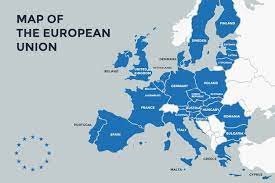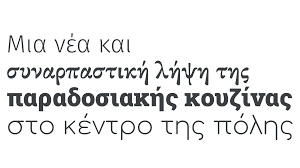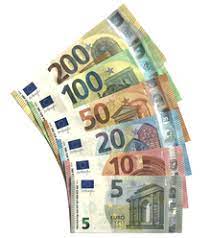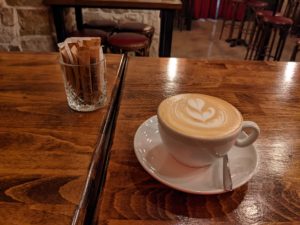10.26.22
Over the past five months we have spent a significant amount of time in Turkey and Greece, along with two side trips to Bulgaria and Romania. We were in Turkey from December 2021, until July 4th and feel we know it pretty well. We lived in the southern city of Antalya, and for 88 days traveled northward by motorcycle up the Turkish Coast and into Greece, where we toured the northern regions for 31 days in partnership with visitors and convention centers. The most amazing thing about Europe, at least from an American’s viewpoint, is how CLOSE countries are, and it is remarkably easy to travel from one to the next, and literally feel like you are in another world. The US, with 50 states and 3000 miles of land east to west, has variety, but except for Mexico to the south, there is no significant change in cultures. Even if you venture north into Canada, except for some nuances, it’s almost like being in America.
Now that we are settled into Greece (for now), I wanted to offer some examples of the differences between those four countries: Turkey, Greece, Bulgaria, & Romania.
One of the big determining factors that give countries some identity is if they are part of the European Union, the EU, since that influences their immigration policy, their financial strength and cost of living, and their money. Along with that is the Schengen Zone factor which determines how long you can STAY in each country. If you want to know more, here’s a report I did several years ago: https://documentcloud.adobe.com/link/track?uri=urn%3Aaaid%3Ascds%3AUS%3Ae6665968-5467-45b4-85cc-d13cff4bcb7f
EU vs. Non-EU:
 Greece is EU, which makes it part of a vast interconnected and interlocked community. Twenty-six (soon to be 27) countries all share a common “Schengen” passport which makes it easy to cross borders, whereas Turkey is an island alone and shares none of that. Turkey has its own individual culture and is predominantly Muslim, while Greece has commonalities with a few countries, like its neighbor, Italy, which is reflected in their foods. The two things they both have in common is a vast and impressive history, though most of the world knows Greek history much more than Turkey’s. Romania and Bulgaria are EU, but non-Schengen…
Greece is EU, which makes it part of a vast interconnected and interlocked community. Twenty-six (soon to be 27) countries all share a common “Schengen” passport which makes it easy to cross borders, whereas Turkey is an island alone and shares none of that. Turkey has its own individual culture and is predominantly Muslim, while Greece has commonalities with a few countries, like its neighbor, Italy, which is reflected in their foods. The two things they both have in common is a vast and impressive history, though most of the world knows Greek history much more than Turkey’s. Romania and Bulgaria are EU, but non-Schengen…
(Written) Language differences:
The world shares many different types of written language, from the variation of Asian/ Chinese Han symbols and icons, to the Cyrillic of Russia and the Arabian text. Turkey employs “English” letters which makes it easier for us to understand (somewhat), but Greece uses a variation of Cyrillic letters which is very difficult for us to interpret. Over the months we drove on the roads we were used to NOT being able  to read the signs, but most had English translations, too. Romania uses Latin letters, whereas Bulgaria does not.
to read the signs, but most had English translations, too. Romania uses Latin letters, whereas Bulgaria does not.
Money:
Greece uses the Euro currency, which is predominant throughout the EU, and currently the Euro/ dollar ration is almost 1:1, which makes calculations very easy. We’ve been in Greece for several months and our buying power is good, but not great. Turkey uses the Lira, which has been very depressed and offers us some of the best buying power in the world. The Euro is supposedly the currency of the EU, but Romania and Bulgaria are both members, but have their own currency; Bulgaria with the Lek, and Romania with the Lei. Buying power in both countries is better than Greece, but not as good as Turkey. BTW, our favorite country, Croatia, will become an EU member on January 1, and convert to the Euro from the Kuna. That does NOT make us happy, but even worse, they will be part of the Schengen, which curtails our residency powers.
 We won’t go into conversions since they change and the bottom line is that ALL these currencies offer a lot of buying power in their respective countries.
We won’t go into conversions since they change and the bottom line is that ALL these currencies offer a lot of buying power in their respective countries.
COFFEE!: This almost deserves a separate post since finding the RIGHT coffee in each country takes real effort! You would think that something as universal as “cappuccino” would be the same, but even though most countries are similar, some are made with one shot of expresso, some with two. Some like them lukewarm, others (not enough!), make them hotter. The milk they add varies from cream to whipped to blended, and have all sorts of fat content. There are way too many variations of a simple cup of coffee, and finding the RIGHT coffee with the RIGHT atmosphere, with the RIGHT prices, is a chore.
Food:
In Turkey you don’t have to go very far to find a shop selling “chai tea,” and almost any street you walk down will have merchants out on the curb drinking it. Along with the tea, the breakfast “meal” I fell in love with included a simit, which is like a sesame seed bagel, usually very soft, and incredibly inexpensive. Some tea, a simit, a pack of black olives and cream cheese, and I was a happy man. But cross the border and what happens?: NONE of that!
 It’s strange that something as man-made as a border crossing would change the world of food, but it does, and we found food in Bulgaria different than Greece, which was different than Turkey. The Greeks make really good salad and even have a salad named after them: Greek Salad, which is usually served with a healthy block of feta cheese on top. That salad is rare in Turkey and unfortunately, we rarely found crispy, crunchy, tasty salads there. Bulgaria and Romania also had good salads.
It’s strange that something as man-made as a border crossing would change the world of food, but it does, and we found food in Bulgaria different than Greece, which was different than Turkey. The Greeks make really good salad and even have a salad named after them: Greek Salad, which is usually served with a healthy block of feta cheese on top. That salad is rare in Turkey and unfortunately, we rarely found crispy, crunchy, tasty salads there. Bulgaria and Romania also had good salads.
In the alcohol world, Turkey has raki, Greece has ouizo, Bulgaria has Rakia (similar), and Romania has Țuica. Beer is also highly popular in all four countries, and each one has their “country favorite,” and it always amazed me how we would see people drinking beer from early in the morning until whenever. But they were almost always under control.
Vive la Difference is a French expression which says we should appreciate the differences. As we have traveled over these past four years we have seen many differences, but one thing was almost always a commonality: most people are kind, pleasant, and wish to be friendly and courteous to these English only speakers from a Strange Land.
